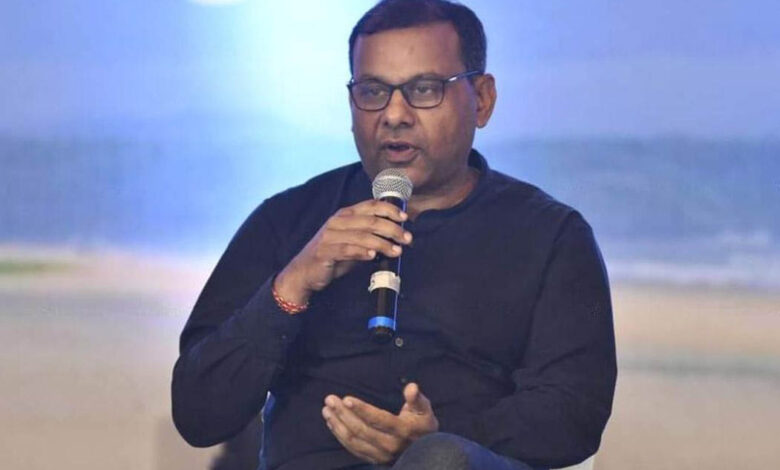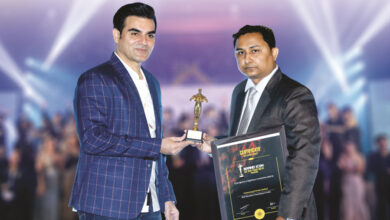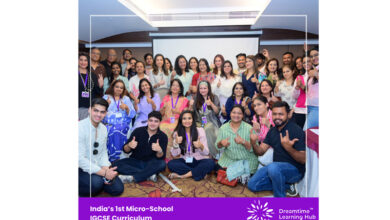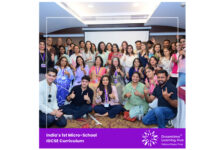Plaksha University founder Vineet Gupta says innovation in technology can prepare workforce for 21st century jobs

The curriculum and standards of our K-12 system need to be revised with workforce advancement targets or else the country’s future workforce will lack technical skills and knowledge. Employment that requires STEM (science, technology, engineering and mathematics) skilled personnel will encompass both people with advanced degrees and graduates who have skill-sets acquired through practical training. Vineet Gupta, Plaksha University’s Founder states, “The focus of K–12 education needs to change to incorporate more STEM skills and experiential learning to address the demands required for a more capable workforce. STEM areas not only provide subject matter knowledge but also equip students with strong analytical ability and problem-solving skills. To spur development, innovation and research in our country, this is a need for exceptional educators who can help nurture this talent.”
NEP-2020 proposes a number of changes to education in the country. It is recommended that existing institutions be improved by adding new departments and courses and that various institutions be combined with others that are specialized. It is possible for the NEP to spur education in our country. It is one of the objectives of the NEP-2020 to establish more multidisciplinary institutions.
By 2030, the policy statement aims to increase the number of students enrolled in higher education by a great deal, and make the nation’s higher education institutions as diverse as possible. A projected increase from 26.3% in 2018 to 50% in 2035 is projected for higher education’s gross enrollment ratio.
An important component of NEP-2020 is employability. Other noteworthy features include multidisciplinary education, flexible learning options, academic banks of credit, and the incorporation of key professional skills. “Education reforms can prepare our workforce for the 21st century by providing them with knowledge and skills required to solve challenges in our society.
Collaboration with other institutions may indeed be beneficial for institutions with insufficient resources. It will allow students to pursue new courses and access better quality education. I do hope that with the implementation of the NEP, the educational ecosystem will undergo a much-needed structural transformation, resulting in training students with technology skills and the ability to innovate, required for success in a global economy,” shares Vineet Gupta.
Plaksha University in Mohali, Punjab aspires to reinvent engineering education and tackle some of the most pressing challenges facing our country. Unlike other technical institutions, it emphasizes interdisciplinary learning and practical training for engineering students. It will enhance teaching-learning and make learning more interesting and engaging. Plaksha University also plans on setting up immersive learning laboratories on campus using Metaverse technologies. “Plaksha University seeks to provide an outstanding learning environment for students and equip them to take on the challenges of the 21st century. Our coursework focuses on modern technologies, and we have re-imagined disciplines of engineering education. Our labs and maker spaces are contemporary and state of the art. A fundamental grounding in computing and mathematics is embedded in all our engineering degrees. Students at Plaksha also go through projects and coursework that help build on skills of entrepreneurship, leadership and communication. We hope that Plaksha will be a premier institution of technology in times to come,” says Vineet Gupta Plaksha University Founder.
In order for India to prepare its workforce to meet the demands of a robust and expanding economy, more focus needs to be placed on STEM courses. A number of government initiatives are aimed at influencing STEM education, but they must be integrated if they are to have a significant impact. Additionally, education goes beyond preparing students for the workforce; it also prepares them for life.
People are members of civil society, and they should make substantial contributions to a better world. Vineet Gupta also expounds the value of continuous education in the digital age. “If we don’t pursue acquisition of knowledge continuously, we risk falling behind. In order to adapt to and succeed in a world that is rapidly changing, students will need to learn, be resilient and agile,” concludes Plaksha University Founder, Vineet Gupta.








